- S.D. Eibar ready for maiden La Liga outing
- SD Eibar stengthen ahead of debut La Liga season
- Can ‘Super Mario’ live up to expectations in Madrid?
- MAN IN THE GROUND – Brentford 0 – 4 Osasuna
- Historic Basque derby welcomes S.D. Eibar to La Liga
- Munich to Madrid, via Brazil – Tony Kroos
- Rakitic in Spanish Switch
- Can Spain find redemption in Rio?
- Viva Espana! A season of redemption for Spanish football
- From the old to the new: who can fill the void in years to come for La Roja?
Spotlight Season: Real Madrid and La Quinta del Buitre 1985-86
- Updated: 11 September, 2012
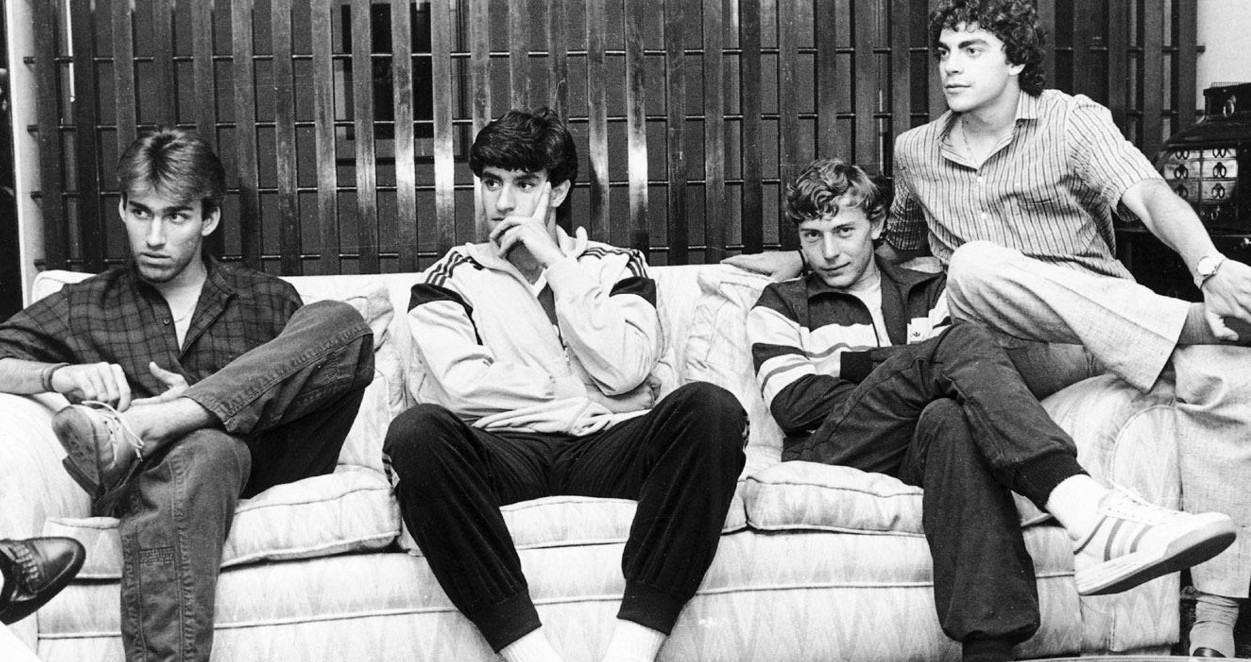
Background
Spain in 1985 was unrecognisable from the neurotic, militarised State of a decade earlier. Democratic and social reform had transformed the country and its people, which in turn led to a surge in creativity and free thinking. Gone was the overburdening, centralised control of the State and in its place stood autonomous regional communities. For the first time in decades, all of Spain’s regions had a voice. As one would expect, this transformation had an impact on the football field.
Real Madrid, who had won four of the first five post-Franco league titles, was for much of the early 1980’s, reduced to a supporting role. They were an ironic and poignant symbol of a once powerful force. Los Merengues needed to change with the times and as is so often the case, the answer was beneath their nose. The development of an exceptional youth squad had propelled the club’s reserve side, Castilla CF, to the second division title, and whilst the club itself was ineligible to join the big time, five of its most illustrious apprentices were about to break through – Make way for the Vulture Squad.
The Story of the Campaign
The Quinta del Buitre was made up of Emilio Butragueño, Manolo Sanchís, Martín Vázquez, Míchel and Miguel Pardeza. They had all made their first time debuts prior to the start of the 1985-86 season, but had yet to truly establish themselves. It required the appointment of Ramon Mendoza as president in May 1985 to sweep through the changes and just as importantly, make the key signing of Hugo Sánchez from city rivals Atlético Madrid. The mix of the new with seasoned professionals like Camacho and Juanito, made Real Madrid genuine contenders.
Add to that the drive of Argentine Jorge Valdano and the goals of Sánchez, and Real Madrid were back and firing on all cylinders. And so it proved to be the case, as Los Merengues took a stranglehold on the league from the early weeks and never looked like relinquishing their lead. Important victories were gained away from home, such as the 1-2 win at San Mamés against Athletic, the 0-1 victory at Atlético and a 0-2 success at a then testing Sporting Gijón. However, it was at the Santiago Bernabéu where Real Madrid proved totally dominant. All 17 home matches were won, the last time a clean sweep has occurred, and the back of the opponents net was found on 47 occasions.
The league title was won with four matches to spare thanks to a 2-1 victory over Real Valladolid at the Bernabéu and Barcelona dropping a point away at Sporting Gijón. Despite losing two of their final four fixtures, Real Madrid won the league by 11 points, a record for a 34 game season.
Matches of the Season
Whilst the league title was won officially two weeks later, Real Madrid broke Barcelona’s resolve with a 3-1 victory at the Bernabéu in week 28. Barça had taken the lead shortly after half-time with a strike from Amarilla, but two quick goals on the hour from Maceda & Valdano and a late strike from Butragueño, all but sealed the title. With the top sewn up, focus turned to the drama and intrigue found at the foot of the table.
The tightest battle was between newly promoted Cádiz and Valencia, who found themselves in unfamiliar territory after a horrendous post-Christmas slump that saw Los Ches go 13 games without a win. With four matches to play, all seemed lost as Valencia trailed Cádiz by four points. However, two back-to-back victories for Valencia reduced the gap to one point, and with Cádiz due to visit the Mestalla on the final day of the season, Los Ches prayed for an unlikely escape.
It was not to be. In the penultimate week of the season, Barcelona put three past Valencia without reply, and Cádiz’s unlikely point at Sevilla, saw Valencia relegated for the first time in its history.
Valencia were joined in La Segunda by newly promoted Celta Vigo, who were soon found wanting and hit the bottom of the pile in week 10. Hercules, in its second season back in the top tier put up more of a fight, but they also dropped due in part to a run that saw just one win in their final 12 matches. Real Zaragoza capped a fine season with a 1-0 victory over Barcelona in the final of the Copa del Rey. Ruben Sosa’s deflected free-kick secured the club’s first Copa in 20 years. Barça’s misery was compounded eleven days later when they lost a forgettable European Cup Final to Steaua Bucharest.
For the Record
Real Madrid’s total of 56 points and 26 victories is a record for a 34 game season. They also topped the scoring charts with 83 goals. Sporting Gijón had the division’s most parsimonious defence, conceding just 27 goals. Unsurprisingly, Celta Vigo conceded a high of 72 goals, whilst Osasuna’s total of just 24 goals scored and 33 conceded made them the team to avoid if you wanted entertainment. A total of 798 goals were scored at an average of 2.60 per game.
Pichichi
Before the arrival of Messi and Ronaldo, the modern goal scoring phenomenon of Spanish football was Hugo Sánchez. After a successful career with UNAM Pumas, Sánchez left his native Mexico to join Atlético Madrid in 1981. He soon began to flourish and earned his first Pichchi title in 1984-85. After joining Real Madrid in the summer of 1985, Sánchez went on to score 164 league goals for Los Merengues, adding another four Pichichi’s to his haul. He stands in second place in La Liga’s all-time goalscorers list with 234 strikes.
Zamora
Sporting Gijón’s Juan Carlos Ablanedo earned his second successive Trofeo Zamora thanks to conceding just 27 goals in 34 games. Agile and brave, Ablanedo earned a third Zamora in 1990. His impressive club form saw him earn four international caps for La Roja and call-ups to the 1986 & 1990 World Cup squads. He retired in 1999, having played nearly 450 times for Sporting, his only club.
The Clubs Today
The class of 85-86 still figure prominently in this season’s La Primera, with 13 of the 18 sides on the roll call. Sporting Gijón, Racing Santander, UD Las Palmas and Hércules ply their trade in La Segunda, Whilst Cádiz has dropped furthest, playing in Group IV of Segunda B.
Follow @icentrocampista


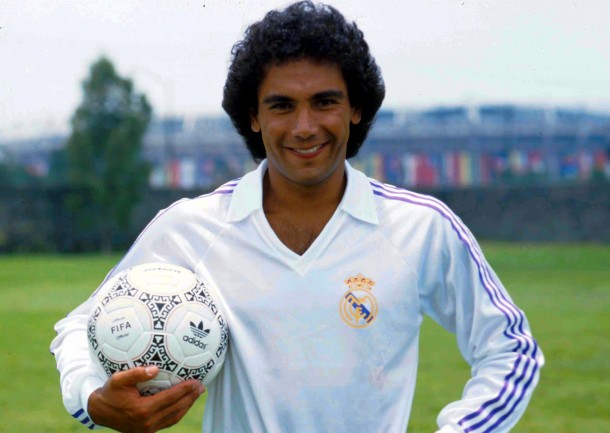
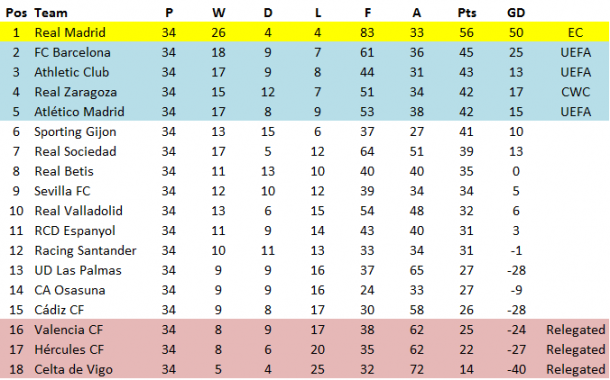
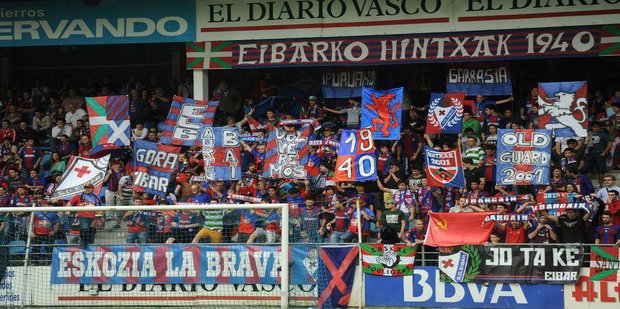

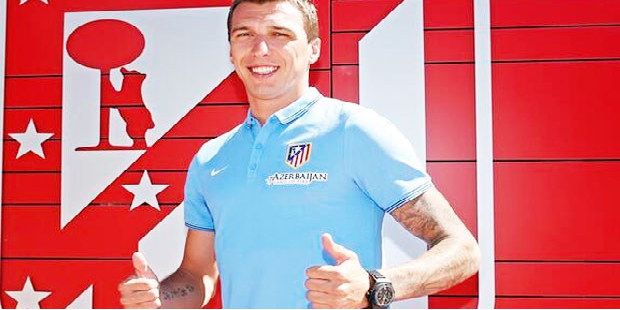


One Comment
You must be logged in to post a comment Login